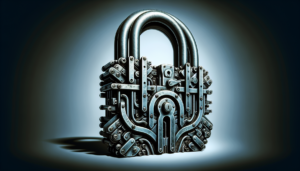In today’s fast-paced and ever-changing world, having keen situational awareness is crucial for navigating through everyday life. Situational awareness refers to the ability to perceive, comprehend, and anticipate our surroundings and the events happening within them. It encompasses being attuned to both immediate physical surroundings as well as the broader social and cultural context. By actively practicing situational awareness, you can enhance your personal safety, make better decisions, and build stronger relationships. In this article, we will delve into the significance of situational awareness in various aspects of our daily lives and explore how it can positively impact our overall well-being.
Definition of Situational Awareness
Situational awareness refers to the ability to fully understand and comprehend one’s surroundings, taking into account all relevant factors and potential threats or opportunities. It involves being alert, observant, and mindful of one’s environment, and being able to process information accurately and quickly. Situational awareness is not limited to a specific context or setting; it is a valuable skill that can be applied both in personal and professional life.
Enhancing Personal Safety
Recognizing potential dangers
One of the key benefits of situational awareness is the ability to recognize potential dangers or threats in our immediate environment. By sharpening our senses and paying attention to the details, we become more attuned to signs of danger, such as suspicious behavior, hazardous conditions, or unusual activities. This heightened awareness allows us to take proactive measures to protect ourselves and those around us.
Avoiding risky situations
Situational awareness empowers individuals to avoid risky situations whenever possible. By being alert and cautious, you can identify potentially dangerous situations and take steps to steer clear of them. For example, if you notice a poorly lit alleyway late at night, you can choose an alternative route to ensure your personal safety. Prevention is always better than having to react to a dangerous situation.
Reacting to emergencies
Even with the best preventive measures, emergencies can still occur. Situational awareness equips individuals with the ability to react swiftly and appropriately in emergency situations. By staying calm and assessing the situation, you can make informed decisions and take necessary actions to minimize harm and ensure the safety of yourself and others. This skill is particularly critical during natural disasters, accidents, or unexpected incidents.
Improving Decision-Making Skills
Evaluating available options
Situational awareness plays a crucial role in improving decision-making skills by providing individuals with a comprehensive understanding of the situation at hand. By evaluating all available options, you can make informed choices based on accurate information. This can be particularly valuable in high-pressure situations where making the right decision quickly is crucial.
Analyzing potential outcomes
In addition to evaluating available options, situational awareness allows for the analysis of potential outcomes. By considering the potential consequences of different courses of action, you can make decisions that maximize positive outcomes and minimize negative ones. This analytical approach helps to mitigate risks and make more effective decisions in both personal and professional settings.
Making informed choices
Situational awareness enhances the ability to make informed choices by incorporating critical information and understanding the broader context. It enables individuals to consider various factors, such as the needs and perspectives of others, ethical considerations, and long-term implications. Making informed choices contributes to personal and professional success and ensures that actions are aligned with desired outcomes.
Increasing Effective Communication
Being attentive to verbal and non-verbal cues
Situational awareness extends to interpersonal interactions and communication. By being attentive to both verbal and non-verbal cues, you can better understand others and effectively convey your own thoughts and intentions. Paying attention to body language, tone of voice, and facial expressions allows for a deeper understanding of communication and facilitates more meaningful and productive interactions.
Understanding others’ perspectives
An essential aspect of effective communication is the ability to understand others’ perspectives. Situational awareness helps individuals develop empathy and actively listen to others, considering different viewpoints and respecting diverse opinions. This understanding promotes collaboration, teamwork, and stronger relationships both in personal and professional settings.
Expressing oneself clearly
Clear and effective communication is a cornerstone of successful interactions. Situational awareness enables individuals to express themselves clearly, ensuring that their messages are understood by others. By recognizing the context, adjusting their communication style, and choosing appropriate words, individuals can convey their ideas and emotions effectively, minimizing misunderstandings and fostering meaningful connections.
Building Stronger Relationships
Developing empathy and understanding
Situational awareness fosters the development of empathy and understanding, which are essential ingredients for building stronger relationships. By actively observing and listening, individuals can better connect with others, recognizing and appreciating their emotions, needs, and experiences. This empathetic approach cultivates trust, respect, and compassion, resulting in more fulfilling personal and professional relationships.
Nurturing effective communication
Effective communication is a fundamental building block of strong relationships. Situational awareness enables individuals to communicate more effectively by actively listening, adapting their communication style, and addressing the needs of others. By nurturing effective communication, individuals can create an open and supportive environment that encourages collaboration, understanding, and mutual growth.
Resolving conflicts
Conflicts are an inevitable part of personal and professional relationships. However, situational awareness can help individuals navigate conflicts more effectively. By recognizing the underlying causes, understanding multiple perspectives, and maintaining emotional control, individuals can approach conflicts with a problem-solving mindset. This proactive approach to conflict resolution promotes healthier relationships and ensures that conflicts are resolved in a fair and constructive manner.
Boosting Performance and Productivity
Enhancing focus and concentration
Situational awareness enhances an individual’s ability to focus and concentrate on tasks at hand. By eliminating distractions and honing in on relevant information, individuals can optimize their cognitive abilities and enhance their performance. This heightened sense of focus leads to increased productivity and efficiency in both personal and professional endeavors.
Managing time and priorities
Time management is a critical aspect of personal and professional success. Situational awareness allows individuals to better manage their time and prioritize tasks effectively. By understanding the urgency, importance, and potential impact of different activities, they can allocate their time and resources more efficiently, ensuring that they achieve their goals and meet deadlines.
Adapting to changing circumstances
Change is a constant in life, and situational awareness equips individuals with the ability to adapt to changing circumstances. By actively observing and processing information, individuals can quickly assess new situations and adjust their plans and strategies accordingly. This flexibility and adaptability enable individuals to navigate uncertainties and embrace new opportunities, ensuring personal and professional growth.
Minimizing Accidents and Mistakes
Identifying potential hazards
Situational awareness helps individuals identify potential hazards or risks in their surroundings. By being attentive and observant, individuals can spot dangerous situations, such as slippery surfaces, faulty equipment, or unsafe practices. This awareness allows them to take preventive measures or notify the appropriate authorities to minimize the likelihood of accidents or injuries.
Taking preventive measures
Prevention is key to minimizing accidents and mistakes. Situational awareness enables individuals to anticipate potential risks and take preventive measures to mitigate them. This may involve implementing safety protocols, practicing good personal hygiene, or implementing security measures. By proactively addressing potential hazards, individuals can create a safer environment for themselves and those around them.
Avoiding careless errors
Careless errors can have significant consequences, both personally and professionally. Situational awareness helps individuals avoid such errors by cultivating a focused and attentive mindset. By double-checking work, maintaining accuracy, and staying alert, individuals can minimize the likelihood of making avoidable mistakes. This attention to detail and commitment to excellence enhance personal and professional reputation and contribute to success.
Increasing Personal and Professional Success
Seizing opportunities
Opportunities often present themselves unexpectedly, and situational awareness allows individuals to seize these opportunities. By being alert and observant, individuals can recognize and capitalize on chances for personal and professional growth. Whether it is a new career prospect, a chance encounter, or a valuable networking opportunity, situational awareness enables individuals to make the most of these moments and propel themselves towards success.
Identifying strengths and weaknesses
Self-awareness is a crucial component of personal and professional success. Situational awareness facilitates self-reflection and introspection, allowing individuals to identify their strengths and weaknesses with greater clarity. This understanding enables individuals to leverage their strengths and work on overcoming their weaknesses, ultimately enhancing their performance and achieving their goals.
Adapting to new challenges
Life is full of challenges, and situational awareness equips individuals with the adaptability and resilience to tackle these challenges effectively. By staying attentive and mindful of their surroundings and circumstances, individuals can assess new challenges and develop strategies to overcome them. This proactive approach to problem-solving fosters personal and professional growth and ensures success in the face of adversity.
Enhancing Situational Awareness in Everyday Life
Practicing mindfulness and observation
Enhancing situational awareness requires regular practice and cultivation of mindfulness. By being present in the moment and fully engaged with one’s surroundings, individuals can sharpen their senses and improve their ability to observe and absorb information. This can be achieved through mindfulness meditation, daily reflection, or simply by paying more attention to the details of one’s environment.
Being mindful of technology distractions
In today’s digital age, technology can be a significant distraction that hampers situational awareness. Being mindful of technology distractions means consciously managing the time spent engaging with devices and maintaining awareness of the immediate surroundings. By limiting unnecessary screen time and prioritizing real-life interactions, individuals can enhance their situational awareness and ensure a more balanced and fulfilling life.
Engaging in situational awareness exercises
Just like any other skill, situational awareness can be improved through regular exercises and training. Engaging in situational awareness exercises, such as practicing memory recall, scenario-based simulations, or critical incident evaluations, helps individuals develop their observation skills and problem-solving abilities. These exercises reinforce the habit of situational awareness, ensuring its application becomes second nature in everyday life.
Conclusion
The importance of situational awareness cannot be understated. It is a valuable skill that enhances personal safety, decision-making, communication, relationship-building, performance, and overall success in both personal and professional life. By cultivating mindfulness, observation, and an attentive mindset, individuals can harness the power of situational awareness to lead more fulfilling and prosperous lives. The ongoing practice and application of situational awareness are essential for reaping its countless benefits and navigating the complexities of everyday life with confidence and clarity.





